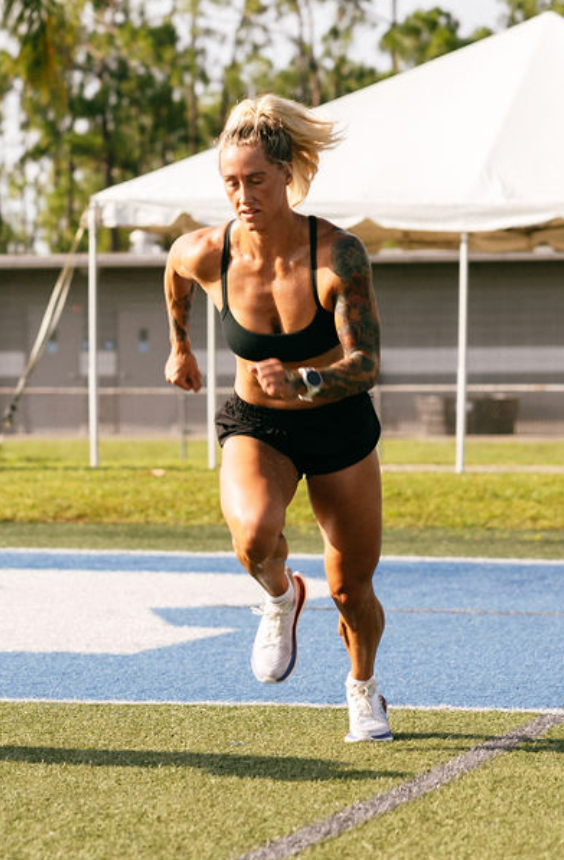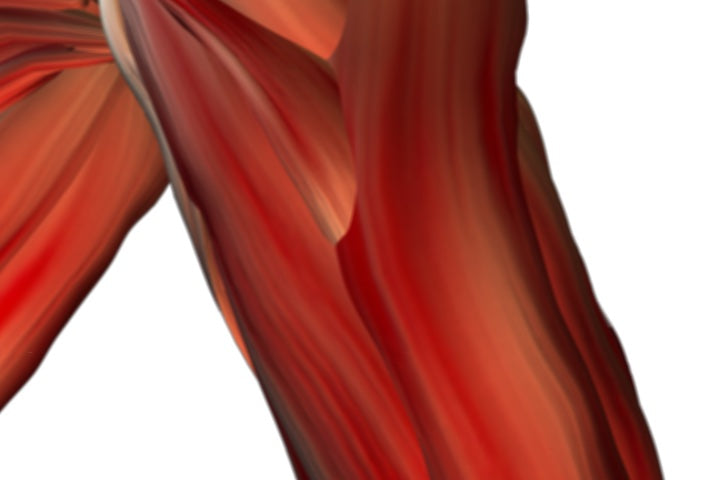In the quest for peak athletic performance, caffeine has emerged as a key ally for athletes across various sports. Revered for its stimulating effects, caffeine is more than just a wake-up call; it’s a performance enhancer backed by science. This blog delves into the different types of caffeine, their health implications, optimal dosages for athletic performance, various sources, and the scientific studies supporting these aspects of caffeine and sports performance.
Different Types of Caffeine
Natural Caffeine: Natural caffeine, sourced from plants like coffee beans, tea leaves, and cocoa beans, has been a popular stimulant for centuries. Distinct from synthetic caffeine, it is extracted directly from these plants, forming a key component in beverages such as coffee and tea. The extraction process, which taps into caffeine's natural role as a plant defense mechanism, also preserves beneficial antioxidants like chlorogenic acid and catechins. These compounds enhance the health benefits of natural caffeine, such as improved focus and increased metabolism, which are crucial caffeine benefits for athletes. Unlike synthetic caffeine, natural caffeine is absorbed gradually, ensuring a steady energy release and avoiding the rapid spikes and crashes associated with synthetic alternatives. This slower, more balanced absorption, coupled with additional healthful compounds, makes natural caffeine a preferred choice for sustained energy and overall health benefits.
Synthetic Caffeine: Synthetic caffeine, though molecularly similar to natural caffeine, carries substantial health risks. Available in powder form and as an additive in sodas and energy drinks, it's much more potent than its natural counterpart, with a single teaspoon equating to the caffeine in over 28 cups of coffee, and two teaspoons potentially being lethal. Its production involves harsh chemicals, which may be very unhealthy for consumption. Unlike natural caffeine, synthetic caffeine is absorbed rapidly, leading to an immediate energy surge followed by a significant crash. Furthermore, products containing synthetic caffeine often include other harmful ingredients.
Health Benefits and Risks of Caffeine
Caffeine's benefits include improved concentration, alertness, and reduced perception of effort, which can be crucial in sports. The effects of caffeine on sports performance are significant, but its consumption is not without risks. Overuse can lead to dependency, dehydration, and sleep disturbances. These effects are highly individualized, with genetics and personal tolerance playing significant roles. Athletes need to balance the benefits with potential risks, tailoring intake to their specific needs.
Does Caffeine Support Athletic Performance?
Caffeine has long been regarded as a potent ergogenic aid in the realm of athletics, known for its ability to enhance sports performance. Its primary mechanism lies in its stimulatory effect on the central nervous system, which helps reduce fatigue, increase alertness, and improve concentration. For endurance athletes, caffeine has been shown to enhance endurance levels, allowing for prolonged periods of physical exertion by mobilizing fat stores and sparing glycogen usage, the body's primary energy source during prolonged exercise. This shift in energy utilization can significantly improve endurance performance, as it delays the onset of fatigue. Additionally, caffeine's role in perceived exertion is noteworthy; athletes often report feeling less tired and more capable of high-level performance when they consume caffeine before and during their activities.
However, the effectiveness of caffeine is not uniform across all sports or all athletes. While caffeine and endurance sports have consistently shown performance improvements with caffeine, the evidence in caffeine and strength training is more mixed. Some studies suggest improvements in muscle strength and power, while others find no significant enhancements. The individual's response to caffeine, including factors like genetic makeup, habitual caffeine consumption, and tolerance levels, plays a crucial role in determining its effectiveness. Moreover, the timing and dosage of caffeine consumption are critical for optimizing its performance-enhancing effects. A general guideline suggests a dosage of 3-6 mg per kg of body weight, taken about an hour before exercise, but this can vary based on individual responses and specific sport requirements. Despite these variables, the overarching consensus in the sports science community is that caffeine, when used appropriately, can be a valuable tool for athletes looking to maximize their training and competitive performances.
Sources of Caffeine for Athletes
Coffee: A popular and accessible source, coffee provides natural caffeine. Its antioxidants offer additional health benefits.
Tea: Tea, especially green tea, is another frequently chosen source of caffeine. Yet, there's a common question about its efficacy as a caffeine before workout option. The reason for this uncertainty stems from green tea's content of l-theanine, an amino acid known for its relaxing effects.
Energy Drinks: These often contain high levels of synthetic caffeine, along with other stimulants. They provide a quick energy boost but can have side effects.
Supplements: Caffeine pills and powders offer precise dosing and are convenient caffeine supplements for athletes. However, they lack the natural antioxidants found in coffee or tea.
The choice of the source should consider the absorption rate of caffeine and practicality for the athlete's lifestyle and preferences.
Is Caffeine Considered a Nootropic?
Caffeine is often considered a nootropic due to its ability to enhance cognitive function. Nootropics, sometimes referred to as "smart drugs" or cognitive enhancers, are substances that improve cognitive abilities, such as memory, creativity, or motivation, in healthy individuals. Caffeine, the most widely consumed psychoactive substance in the world, primarily acts as a central nervous system stimulant, blocking the action of adenosine, a neurotransmitter that promotes sleep and relaxation. This blockade leads to increased alertness, concentration, and reduced perception of fatigue, which are desirable effects in cognitive enhancement. Additionally, caffeine has been shown to improve various aspects of brain function, including memory, mood, vigilance, energy levels, reaction times, and general cognitive function, aligning it with the typical objectives of nootropics. While caffeine doesn't possess the range of cognitive benefits some other nootropics claim, its well-documented effects on alertness and concentration make it a popular, albeit mild, choice for those seeking a cognitive boost.

Caffeine: Dosing, Timing, and the Best Way To Consume
Caffeine dosage and caffeine timing before workout are crucial factors in maximizing its benefits, especially for athletes and individuals seeking enhanced mental or physical performance. The recommended dosage of caffeine typically ranges between 3-6 mg per kilogram of body weight. However, this can vary depending on an individual's sensitivity to caffeine, their usual intake, and specific performance goals. For instance, lower doses may be sufficient for someone with high caffeine sensitivity or lower body weight, whereas others may require a dose towards the upper end of this range. It's also important to avoid excessive consumption, as high doses of caffeine can lead to negative side effects like jitteriness, anxiety, and gastrointestinal discomfort. The timing of caffeine intake is equally important; consuming caffeine about 30-60 minutes before engaging in physical or mental activity is generally recommended. This timing allows the caffeine to reach peak levels in the bloodstream, ensuring maximum effectiveness.
When it comes to the method of intake, caffeine is available in various forms, including coffee, tea, energy drinks, supplements like pills and powders, and even certain foods. The choice of source should be based on personal preference, convenience, and any additional nutritional goals or restrictions. For example, coffee and tea not only provide caffeine but also contain antioxidants and other healthful compounds. In contrast, caffeine supplements offer precise dosing and might be preferred by those looking to avoid additional calories or substances found in beverages. Athletes and individuals should also consider the rate of caffeine absorption from different sources, as this can influence the onset and duration of its effects. For instance, liquid forms such as coffee or energy drinks might be absorbed faster than supplements or food sources. Ultimately, the most effective way to take caffeine will depend on individual preferences, lifestyle, and specific goals, and it might require some experimentation
The Last Sip: Summarizing Caffeine's Impact
In summarizing the intricate relationship between caffeine and sports performance, it's clear that caffeine stands as a powerful ally for athletes seeking an edge in their performance. Through its stimulating effects on the central nervous system, caffeine effectively reduces fatigue and enhances focus, thereby aiding athletes in pushing their limits. The discussed optimal dosages, typically ranging from 3 to 6 mg per kg of body weight, offer a guideline, but individual variation in response to caffeine means that personalization is key. Athletes are encouraged to consider their sensitivity, habitual intake, and specific performance goals when determining their ideal caffeine regimen. Furthermore, the choice of caffeine source - be it natural forms like coffee and tea or synthetic alternatives - should align with personal health goals and dietary preferences. It's essential to balance the pursuit of performance enhancement with overall well-being, keeping in mind the potential side effects of excessive caffeine consumption. In conclusion, caffeine can be a valuable tool in an athlete's arsenal, offering the boost needed to achieve peak performance.









コメントを書く
このサイトはhCaptchaによって保護されており、hCaptchaプライバシーポリシーおよび利用規約が適用されます。